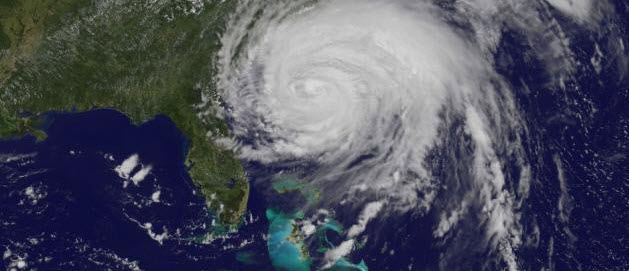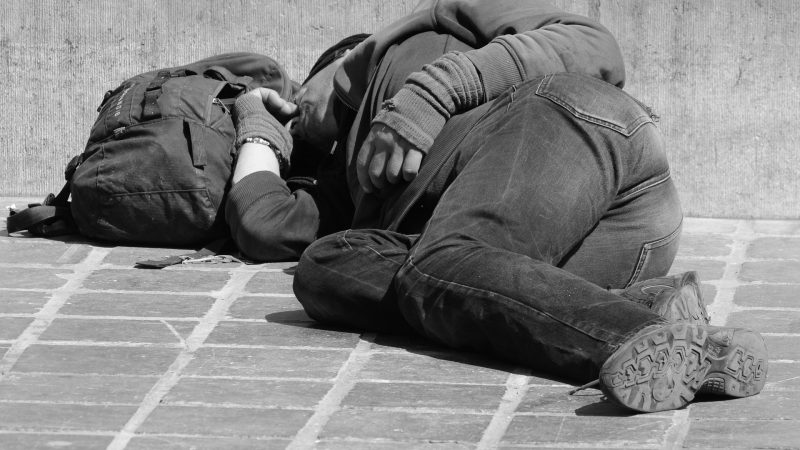Ready.gov/hurricanes
A hurricane is a type of tropical cyclone or severe tropical storm that forms in the southern Atlantic Ocean, Caribbean Sea, Gulf of Mexico, and in the eastern Pacific Ocean.
All Atlantic and Gulf of Mexico coastal areas are subject to hurricanes. The Atlantic hurricane season lasts from June to November, with the peak season from mid-August to late October.
Hurricanes can cause catastrophic damage to coastlines and several hundred miles inland. Additionally, hurricanes can create storm surges along the coast and cause extensive damage from heavy rainfall. Floods and flying debris from the excessive winds are often the deadly and destructive results of these weather events.
To prepare for a hurricane, you should take the following measures:
To begin preparing, you should build an emergency kit and make a family communications plan.
Know your surroundings.
Learn the elevation level of your property and whether the land is flood-prone. This will help you know how your property will be affected when storm surge or tidal flooding are forecasted.
Identify levees and dams in your area and determine whether they pose a hazard to you.
Learn community hurricane evacuation routes and how to find higher ground. Determine where you would go and how you would get there if you needed to evacuate.
Make plans to secure your property:
Cover all of your home’s windows. Permanent storm shutters offer the best protection for windows. A second option is to board up windows with 5/8” marine plywood, cut to fit and ready to install. Tape does not prevent windows from breaking.
Be sure trees and shrubs around your home are well trimmed so they are more wind resistant.
Clear loose and clogged rain gutters and downspouts.
Plan to bring in all outdoor furniture, decorations, garbage cans and anything else that is not tied down.
Install or rent a generator for emergencies.
If in a high-rise building, be prepared to take shelter on or below the 10th floor.
If a hurricane is likely in your area, you should:
Listen to the radio or TV for information.
Secure your home, close storm shutters and secure outdoor objects or bring them indoors.
Turn off utilities if instructed to do so. Otherwise, turn the refrigerator thermostat to its coldest setting and keep its doors closed.
Turn off propane tanks.
Avoid using the phone, except for serious emergencies.
Ensure a supply of water for sanitary purpose such as cleaning and flushing toilets. Fill the bathtub and other larger containers with water.
You should evacuate under the following conditions:
If you are directed by local authorities to do so. Be sure to follow their instructions.
If you live in a mobile home or temporary structure – such shelter are particularly hazardous during hurricane no matter how well fastened to the ground.
If you live in a high-rise building – hurricane winds are stronger at higher elevations.
If you live on the coast, on a floodplain, near a river, or on an island waterway.
Read more about evacuating yourself and your family. If you are unable to evacuate, go to your wind-safe room. If you do not have one, follow these guidelines:
Stay indoors during the hurricane and away from windows and glass doors.
Close all interior doors – secure and brace external doors.
Keep curtains and blinds closed. Do not be fooled if there is a lull; it could be the eye of the storm – winds will pick up again.
Take refuge in a small interior room, closet or hallway on the lowest level.
Lie on the floor under a table or another sturdy object.
Avoid elevators.
Continue listening to a NOAA Weather Radio or the local news for the latest updates.
Stay alert for extended rainfall and subsequent flooding even after the hurricane or tropical storm has ended.
If you have become separated from your family, use your family communications plan or contact the American Red Cross at 1-800-RED-CROSS/1-800-733-2767 or visit the American Red Cross Safe and Well site: www.safeandwell.org
The American Red Cross also maintains a database to help you find family. Contact the local American Red Cross chapter where you are staying for information. Do not contact the chapter in the disaster area.
If you evacuated, return home only when officials say it is safe.
If you cannot return home and have immediate housing needs. Text SHELTER + your ZIP code to 43362 (4FEMA) to find the nearest shelter in your area (example: shelter 12345).
For those who have longer-term housing needs, FEMA offers several types of assistance, including services and grants to help people repair their homes and find replacement housing. Apply for assistance or search for information about housing rental resources
Drive only if necessary and avoid flooded roads and washed¬ out bridges. Stay off the streets. If you must go out watch for fallen objects; downed electrical wires; and weakened walls, bridges, roads, and sidewalks.
Keep away from loose or dangling power lines and report them immediately to the power company.
Walk carefully around the outside your home and check for loose power lines, gas leaks and structural damage before entering.
Stay out of any building if you smell gas, floodwaters remain around the building or your home was damaged by fire and the authorities have not declared it safe.
Inspect your home for damage. Take pictures of damage, both of the building and its contents, for insurance purposes.
If you have any doubts about safety, have your residence inspected by a qualified building inspector or structural engineer before entering.
Use battery-powered flashlights in the dark. Do NOT use candles. Note: The flashlight should be turned on outside before entering – the battery may produce a spark that could ignite leaking gas, if present.
Watch your pets closely and keep them under your direct control. Watch out for wild animals, especially poisonous snakes. Use a stick to poke through debris.
Avoid drinking or preparing food with tap water until you are sure it’s not contaminated.
Use the telephone only for emergency calls.
NEVER use a generator inside homes, garages, crawlspaces, sheds, or similar areas, even when using fans or opening doors and windows for ventilation. Deadly levels of carbon monoxide can quickly build up in these areas and can linger for hours, even after the generator has shut off.
Hurricanes cause heavy rains that can cause extensive flood damage in coastal and inland areas. Everyone is at risk and should consider flood insurance protection. Flood insurance is the only way to financially protect your property or business from flood damage. To learn more about your flooding risk and how to protect yourself and your business, visit the Federal Insurance and Mitigation Administration (NFIP) Web site,www.floodsmart.gov or call 1-800-427-2419.



